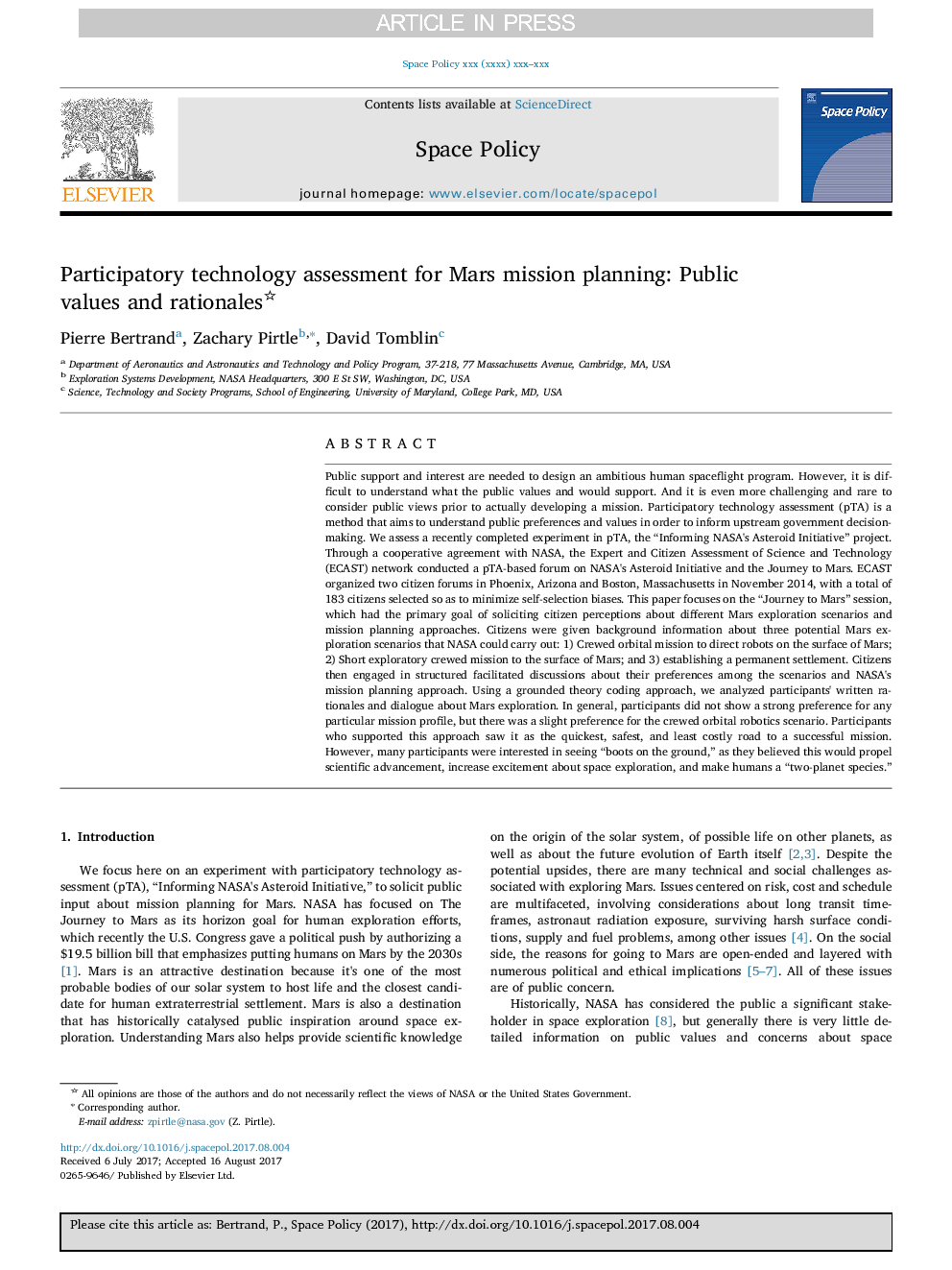ترجمه فارسی عنوان مقاله
ارزیابی تکنولوژی مشارکتی برای برنامه ریزی ماموریت مریخ: ارزش های عمومی و منطق
عنوان انگلیسی
Participatory technology assessment for Mars mission planning: Public values and rationales
| کد مقاله | سال انتشار | تعداد صفحات مقاله انگلیسی |
|---|---|---|
| 112045 | 2017 | 13 صفحه PDF |
منبع

Publisher : Elsevier - Science Direct (الزویر - ساینس دایرکت)
Journal : Space Policy, Volume 42, November 2017, Pages 41-53

